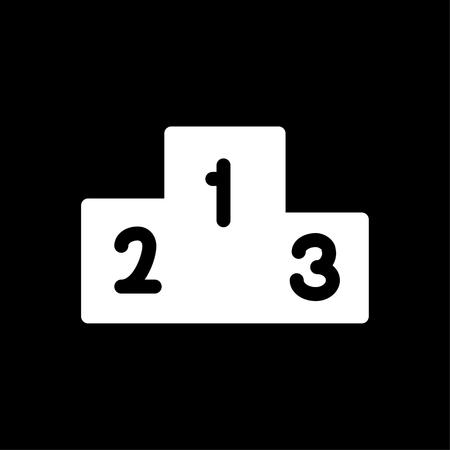A Brief Introduction to Numerology in British Culture
In the gentle mist of the British Isles, numbers have long whispered their secrets through history’s winding lanes. Numerology, the ancient study of numbers and their mystical meanings, finds its roots in both the folklore of rural Britain and the scholarly pursuits of medieval thinkers. The Celts saw significance in sacred numbers—three for harmony, seven for mystery—woven into their tales and rituals. Through centuries, numerology lingered quietly: from the cryptic codes of Stonehenge to the superstitions tucked within Victorian parlours. Today, its presence has blossomed anew across the UK’s modern spiritual communities, where seekers from every generation gather in bookshops and online forums, seeking guidance through life’s complexities. Whether it’s a grandmother reflecting on a birth date or a young Londoner decoding relationship dynamics through numerological charts, this ancient wisdom endures—bridging tradition and innovation, uniting generations with a shared curiosity about destiny’s subtle arithmetic.
2. Defining the Generations: A British Perspective
Understanding numerology compatibility across age groups in Britain begins with a clear definition of each generation, their formative experiences, and what sets them apart. In the UK, generational identity is shaped not only by global trends but also by distinct social, economic, and cultural milestones unique to British life. Let’s explore these cohorts more closely:
British Generational Cohorts
| Generation | Birth Years (UK) | Key Events & Influences | Cultural Values & Traits |
|---|---|---|---|
| Baby Boomers | 1946–1964 | Post-war recovery, NHS founding, swinging sixties, Cold War anxieties | Community-minded, value stability, fondness for tradition, cautious optimism |
| Generation X | 1965–1980 | Thatcher era, miners’ strikes, emergence of alternative music scenes, Channel 4 launch | Independent, pragmatic, adaptable, slightly sceptical of authority |
| Millennials (Gen Y) | 1981–1996 | Dawn of the internet, Cool Britannia, financial crises, rapid technological change | Digitally fluent, socially conscious, value work-life balance and authenticity |
| Generation Z | 1997–2012 | Boom of social media, climate activism (e.g., Extinction Rebellion), Brexit debates | Diverse, open-minded, entrepreneurial spirit, prioritise inclusivity and mental health awareness |
The Subtle Nuances Within British Generations
The British context weaves its own flavour into each generation’s story. For instance, Baby Boomers often reminisce about “the good old days”—the rise of the Beatles or their first family holiday to Blackpool—while Generation X might recall the uncertainty during mass privatisations or the creative explosion of Britpop. Millennials grew up amidst Tony Blair’s “New Labour” optimism and witnessed the digital revolution firsthand. Gen Z have been shaped by political polarisation and are fiercely passionate about social issues from a young age.
A Tapestry of Evolving Values
These generational distinctions aren’t just trivia—they influence how each group approaches relationships and self-understanding. In numerology compatibility readings, the context surrounding one’s upbringing becomes a subtle undercurrent shaping attitudes toward love, destiny, and harmony. When we consider how British values have shifted—from post-war resilience to digital-era fluidity—we begin to see why understanding these generational nuances is essential for meaningful numerological insight in the UK.

3. Core Numerological Principles and Compatibility Basics
At the heart of numerology lies the belief that numbers are more than mere symbols—they carry distinct vibrations that influence our personalities, decisions, and the energies we emit into our relationships. For generations across Britain, whether nestled in the historic streets of Edinburgh or the bustling boroughs of London, these principles have subtly woven themselves into the cultural tapestry, guiding everything from personal choices to community interactions.
The Building Blocks: Life Path Numbers and Beyond
The most foundational aspect of numerology is the Life Path Number, calculated from one’s date of birth. This number acts much like a spiritual postcode, offering insight into a person’s innate traits and life’s journey. Alongside this, Destiny and Soul Urge numbers add further nuance, revealing deeper desires and talents. In British culture, where heritage and identity are cherished, these numbers can become gentle guides for self-reflection—be it through quiet moments with a cup of tea or lively pub discussions among friends.
Numerology as a Lens for Relationship Dynamics
Compatibility in numerology hinges on how these core numbers interact. Some combinations harmonise naturally, while others spark growth through their contrasts—a dynamic many Brits might liken to navigating differences between generations at family gatherings or local meet-ups. Numerology offers a language for understanding why certain connections feel effortless and others require nurturing patience, mirroring the British values of empathy and respect for individuality.
Community Connections: Numbers Bridging Generations
Numbers don’t just illuminate romantic compatibility; they also shed light on intergenerational understanding within communities. For instance, traditionalists may resonate with steadfast Number 4 energy, valuing stability and order reminiscent of post-war Britain. Meanwhile, younger generations might gravitate towards adventurous Number 5 or visionary Number 11 energies, reflecting contemporary shifts in values and aspirations seen across cities from Manchester to Cardiff.
In essence, numerology provides both a map and a compass—helping individuals and groups navigate the ever-evolving landscape of British society by fostering awareness, compassion, and an intuitive sense of belonging rooted in shared vibrational threads.
4. Numerology in Social Life: How Different Generations Connect
In the tapestry of British social life, connections across generations are both cherished and complex. Numerology, with its ancient wisdom, offers a unique lens through which we can understand and nurture these bonds—whether it’s the quick-witted banter by the office kettle or the tender moments shared at Sunday roast. Recognising each generation’s dominant numerological energy can deepen mutual understanding and strengthen our social fabric.
The Numbers Behind Our Interactions
Every individual carries a unique numerological profile, shaped by their birth date and name. When we look at generational cohorts—such as Baby Boomers, Generation X, Millennials, and Gen Z—distinct patterns emerge. For example, Boomers may resonate with numbers associated with tradition and stability, while Millennials might embody dynamic and innovative energies. By appreciating these core differences, we become more adept at bridging conversational gaps and celebrating what each generation brings to the table.
Numerology-Inspired Social Styles Across British Age Groups
| Generation | Common Numerological Vibration | Typical Social Approach | British Cultural Example |
|---|---|---|---|
| Baby Boomers (1946–1964) | 6 (Harmony & Responsibility) | Value tradition; enjoy structured gatherings | Hosting family tea or volunteering at community fêtes |
| Generation X (1965–1980) | 5 (Freedom & Adaptability) | Balance independence with loyalty; prefer informal meet-ups | Pint at the pub after work or group walks in the countryside |
| Millennials (1981–1996) | 3 (Creativity & Communication) | Lively banter; seek meaningful dialogue and digital connection | Organising charity runs or lively WhatsApp family chats |
| Gen Z (1997–2012) | 1 (Innovation & Individuality) | Pioneering new ways to connect; value authenticity | TikTok challenges with grandparents or intergenerational podcasts |
The Alchemy of Office Banter and Family Rituals
A walk through any British workplace reveals how numerology subtly influences our daily exchanges. A Boomer manager (guided by a nurturing 6 energy) might initiate team lunches to foster unity, while a Millennial colleague (sparked by 3’s creativity) introduces quiz nights to keep spirits high. Similarly, British families often blend generational energies during festive celebrations—each person finding their role according to their vibrational strengths.
Nurturing Bonds Through Numerological Awareness
By weaving numerological understanding into our interactions, we not only honour each generation’s essence but also create richer connections. Whether it’s sharing stories over fish and chips or navigating differences during heated debates on politics or pop culture, numerology guides us towards empathy. In true British fashion, this respect for individuality within community becomes the invisible thread that ties us together—one cup of tea at a time.
5. Personal Stories: Britons Bridging Generational Gaps Through Numbers
Across the rolling hills of Yorkshire and the bustling streets of London, stories abound of Britons turning to numerology as a bridge across generational divides. Take for instance Margaret, a retired teacher from Bath, who found herself at odds with her Gen Z granddaughter, Chloe. Frustrated by their miscommunications, Margaret delved into numerology out of curiosity. Discovering that their core numbers spoke of different approaches to life—Margaret’s pragmatic 4 clashing with Chloe’s adventurous 5—she began to intuitively sense when to offer structure and when to encourage spontaneity. Their relationship softened, and Sunday teas became sessions for sharing dreams rather than debating differences.
In Manchester, Rajiv, a tech-savvy millennial, recounts how he used numerology to forge deeper connections with his baby boomer father. Initially sceptical but willing to try anything after years of misunderstandings, Rajiv calculated their life path numbers and uncovered shared traits masked by generational expression. Suddenly, his father’s “old-fashioned” values were reframed as the grounding wisdom of a fellow 6. This mutual recognition sparked heartfelt conversations about legacy and purpose over pints at their local pub.
Meanwhile, in Edinburgh, Sarah—a university student—shares how understanding her mother’s master number opened new channels of empathy between them. “I realised Mum wasn’t being controlling,” she recalls, “she was just living out her destiny number’s need to nurture.” Guided by intuitive nudges, Sarah began responding with appreciation instead of resistance. Their once-tense kitchen exchanges transformed into collaborative meal preps filled with laughter and learning.
Such tales are not mere anecdotes; they represent an emerging trend among Britons seeking harmony across age groups through numbers. Whether it’s families navigating shifting traditions or colleagues bridging workplace divides, numerology becomes both a map and compass—guiding intuitive understanding where words alone have failed.
6. Practical Guidance: Applying Numerology for Cross-Generational Harmony
Embracing the wisdom of numerology can become a gentle, intuitive bridge between British generations, fostering empathy and meaningful connection. Here, you’ll discover actionable tips and mindful exercises designed to help you weave numerology into your daily interactions, whether you’re sharing a cup of tea with a Baby Boomer or texting a Gen Z relative.
Start with Birth Numbers: Laying the Foundation
Begin by calculating the life path numbers for yourself and those around you—parents, children, colleagues, or friends. In true British fashion, approach these conversations with light curiosity: “I came across this fascinating thing called numerology—shall we see what our numbers say about us?” This simple act opens a door to shared exploration and laughter, breaking down generational barriers.
Empathy Exercise: The Number Swap
Choose a family gathering or team meeting and invite each person to share one strength or value linked to their life path number. For example, if someone’s number is 6 (the nurturer), ask them to describe how they express care in everyday life. Encourage others to acknowledge these qualities aloud. This exercise gently nurtures mutual respect and appreciation for different generational gifts.
Communication Tip: Speak Their Language
Recognise that each number—and each generation—has its own communication style. If your Gen X colleague has a pragmatic 4 as their life path number, frame discussions with structure and clarity. Meanwhile, a creative Gen Z with a 3 might appreciate visual aids or storytelling in your exchanges. Tailoring your approach shows deep respect—a quintessentially British quality!
Cultivating Shared Rituals
Create simple rituals rooted in numerology: perhaps a monthly Sunday roast where everyone shares a personal intention inspired by their number, or a book club that explores stories aligned with collective numbers in the group. These moments become anchors of connection, blending tradition with soulful discovery.
Reflection Practice: Journalling Across Generations
Encourage each age group to keep a numerology journal for one week, noting how their life path traits show up at work, home, or school. At the end of the week, share entries over tea or on a family video call. Listen deeply—sometimes the most powerful bridge is simply holding space for each other’s stories.
By weaving numerology into daily life with openness and compassion, we honour both our individuality and our shared British heritage. Let these practices guide you towards deeper understanding and harmony across all generations.

